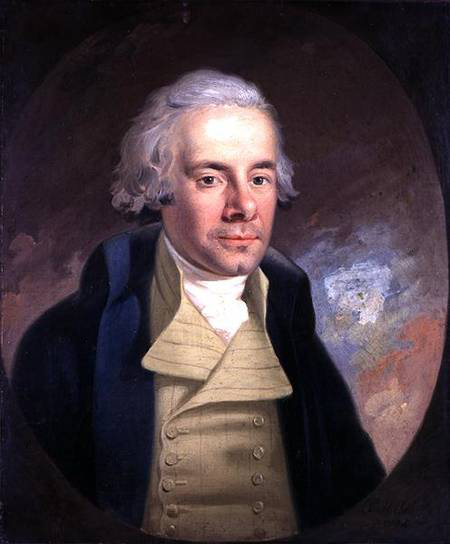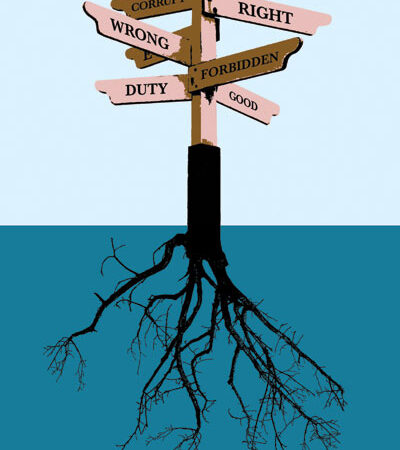A society does not end slavery, racism, or sexism merely by writing new laws. As we saw in part 1, the changes must begin at a moral level.
An Old Testament example
We read an example from Philemon, here’s one from Jeremiah.
The word that came to Jeremiah from the Lord, after King Zedekiah had made a covenant with all the people in Jerusalem to make a proclamation of liberty to them, that everyone should set free his Hebrew slaves, male and female, so that no one should enslave a Jew, his brother. And they obeyed, all the officials and all the people who had entered into the covenant that everyone would set free his slave, male or female, so that they would not be enslaved again. They obeyed and set them free. The word of the Lord came to Jeremiah from the Lord: “Thus says the Lord, the God of Israel: I myself made a covenant with your fathers when I brought them out of the land of Egypt, out of the house of slavery, saying, ‘At the end of seven years each of you must set free the fellow Hebrew who has been sold to you and has served you six years; you must set him free from your service.’ But your fathers did not listen to me or incline their ears to me. You recently repented and did what was right in my eyes by proclaiming liberty, each to his neighbor, and you made a covenant before me in the house that is called by my name, but then you turned around and profaned my name when each of you took back his male and female slaves …
“Therefore, thus says the Lord: You have not obeyed me by proclaiming liberty, everyone to his brother and to his neighbor; behold, I proclaim to you liberty to the sword, to pestilence, and to famine, declares the Lord. I will make you a horror to all the kingdoms of the earth.”
Slavery is morally condemned
Dennis Prager comments:
The Book of Jeremiah records that during a period of great peril to the citizens of Judea (around 586 BCE), when the Babylonian King Nebuchadnezzar and his troops were about to invade Jerusalem, the Jews freed all their Hebrew slaves (indentured servants), many of whom were held in violation of Torah law for longer than the permitted six years. Then, as soon as the danger seemed to pass, they “turned about and brought back the men and women they had set free and forced them into slavery again” (Jeremiah 34:11). This act of cruelty caused God to declare, through Jeremiah, that the Judeans would now suffer the worst sorts of suffering, involving famine, pestilence, and death … It is of great importance to note that both the punishment of Pharaoh and his nation and of the Jews in sixth-century BCE Judea—as described in this episode—are in response to the mistreatment of slaves. God holds His own people and the Egyptians accountable to the same basic standard—a unique concept in religious history up to that time. The Torah does not legally ban slavery but it morally condemns it. In general … the moral precedes the legal. First you teach people what is right and wrong, then they eventually put the teaching into law. First you teach people “all men are created equal” and “created in the image of God”—then eventually they end slavery.[i]
Ending slavery, sexism, and racism must begin in the hearts and minds of individuals. These institutional evils must be seen for what they are, moral evils.
Far as the curse is found
It took over forty years for William Wilberforce and his band of men and women in the Clapham Sect to show the English people that slavery was a moral evil rather than a moral good. When this cultural shift had occurred, the conditions were laid to change the laws to forbid slavery in the British Empire. Over time, this cultural shift in Britain became the global standard.
 Today, much of the world recognizes slavery, sexism and racism as moral evils. Yet there are still nations that have not affirmed this truth in their laws or in cultural mores.
Today, much of the world recognizes slavery, sexism and racism as moral evils. Yet there are still nations that have not affirmed this truth in their laws or in cultural mores.
At this moment in history, we who profess Christ must affirm with Isaac Watts the imperative of his wonderful Christmas hymn:
No more let sins and sorrows grow,
Nor thorns infest the ground;
He comes to make His blessings flow
Far as the curse is found,
Far as the curse is found,
Far as, far as, the curse is found.
First, let us confess the moral evil found in our own lives, then preach Christ crucified and call people to repentance – literally to be “re-minded.” Then we need to seek to reform, to disciple the nation at the level of culture, and then create laws and institutions that recognize the dignity of every human being.
- Darrow Miller
[i] Prager, Dennis. The Rational Bible: Exodus. Regnery Faith. Kindle Edition, p. 109.






